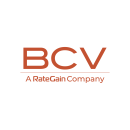“Hybrid Work Is Doomed,” reads the title of a recent The Atlantic article by Ian Bogost. In the piece, he argues that the inevitable downfall of America’s new favorite workplace model has little to do with the momentum of a pandemic-fueled labor revolution or a question of productivity — it’s simply not in the nature of the office as a central institution.
For Provi’s SVP of People Erica Golden, however, a hybrid system works if you can walk the walk — literally. A portion of her week is dedicated to working from her treadmill desk at home, an inspiration from her time at organizations that encouraged walking meetings. Now, the walk-and-talk is implemented at the company, an effort to maximize time spent in-person among staff while injecting a bit of spirit.
While a fragmented team can be challenging from a management perspective, the value of hybrid is in the autonomy of choice for everyone involved.
“Our employees have noted that they love coming into the office to build relationships or to enhance projects, but are also thriving working from home,” Golden said. Offering that choice lifts the burden of constraint for workers, and allows for a personalized work schedule that both relieves burnout and introduces a change of pace within routine. For Provi’s Chicago office, that means employees coming into the office once a week.
At hospitality-oriented BCV, maintaining collaborative efforts sets a strong foundation for productivity. When trusted to craft their own schedule, employees have met expectations in and out of the office. “It’s very rewarding to see our team enable these based on what they need in the moment,” said Carol Casanova, the company’s director of global marketing and communications.
In the cultural clash to define the new return-to-work policy, economic downturn has transformed the remote revolution into what journalist Derek Thompson recently called a “fragile creature of circumstance.” However, many tech companies are making hybrid soar regardless, and carving out a niche that gives employees control over their own time. Built In Chicago sat down with two leaders that found success in driving an autonomy-based model of employment, built on the tenet that good work can be done — anytime, anywhere.

Provi is a management solution for alcoholic beverage programs. The company’s inventory platform handles clients from every tier of the alcohol industry, from bars and restaurants to distributors and brands. As an all-in-one marketplace, Provi connects members of the trade so they can better support their own customers. Within the company, SVP of People Erica Golden aims to support her teams as well. “Our employees are happy to work from home the majority of the time and then take full advantage of the time they have together in the office,” she said.
What is your company’s hybrid model like?
We have an autonomy-driven model for our employees. Our employees can choose to come into the office. The conversations about whether an employee is going to come in regularly or sporadically happen between them and their leader. Our employees have noted that they love coming into the office to build relationships or to enhance projects, but are also thriving working from home some of the time. We have team summits and ideation meetings that happen in the office intermittently when larger groups will come in, but there is a virtual option for attendance.
Because we have given the decision to our employees on whether they are comfortable and confident about coming into the office, we have seen a lot of employees in Chicago working from home four days a week and from the office one day.
As a manager, what do you most enjoy about your company’s hybrid work model?
I enjoy being able to work a portion of my week from my treadmill desk at home. Being able to walk, however slowly, during my work day has not only made some positive changes to my biometrics, but has also increased my overall stamina. I have worked for organizations that encouraged walking meetings as a driver of creative thinking that is now supported by research — and I have seen that those of us who walk-and-talk now at Provi are benefitting from it in personal and team-oriented ways.
Our employees love coming into the office to build relationships or to enhance projects, but are also thriving working from home.”
What are the biggest challenges associated with management in a hybrid workplace, and what are some strategies you use to overcome them?
Authentic connection and consistent informing are the top two challenges of the hybrid model. To drive more connection for our existing and new employees, we are holding a multi-day company conference called ProviFest, where we will be having leader training on Britt Andreatta’s neuroscience work, talking through company strategy and holding many other small-group sessions, in addition to other social moments to prompt the deepening of new work relationships.
To help with consistent informing, we use Slack in a fluid way, similar to the way that we would catch up in hallway conversations. In using fast bursts to share perspective with others, we are staying close on projects. The hybrid workplace has several pros and cons, so to temper that swing, we are maximizing our time together while also using our platforms in fluent ways.
BCV provides social media solutions for the hospitality industry. The RateGain-acquired company helps craft social strategies for big-name clients such as The Ritz-Carlton, Hyatt and Four Seasons, tailoring their digital marketing initiatives to the guest experience. Carol Casanova, BCV’s director of global marketing and communications, understands that to optimize social media management, the company must first optimize the workplace. “As a manager, what I enjoy most is seeing our team leverage the flexibility we’re offering by taking care of their physical and mental health,” she said.
What is your company’s hybrid model like?
Our hybrid model is focused on promoting optimal productivity by prioritizing flexibility and collaboration. Team members are not required to come in, but instead, collaborate with colleagues four times per month in any setting that works best for them. The team is trusted to craft their own schedule and we’ve found them to be happier knowing that this is accepted and embraced within our policy. They understand what’s needed, and have continued to meet expectations and deliver quality work whether inside or outside the office.
As a manager, what do you most enjoy about your company’s hybrid work model?
As part of our company’s Slack channels, we’ve enabled five core status options to improve communication across the organization. These include PTO, in a meeting, wellness break, focus time and work travel. It’s very rewarding to see our team enable these based on what they need in the moment. While it may seem small, a status like focus time allows you to work uninterrupted and that can dramatically increase your sense of accomplishment and healthy mental state.
What are the biggest challenges associated with management in a hybrid workplace, and what are some strategies you use to overcome them?
The biggest challenge in a hybrid workplace is the ease of fatigue which can present itself in a number of ways such as zoom fatigue, an always-on mentality and not leaving work at work when remote. Our leadership team is constantly discussing additional initiatives that can create a healthier work-life balance for our team and it’s reassuring to know how much they care.
Combatting Fatigue
- No Meeting Monday allows the team time to set themselves up for the week.
- Email and Slack schedules that respect business hours across the globe.
- Reduced Zoom calls.









